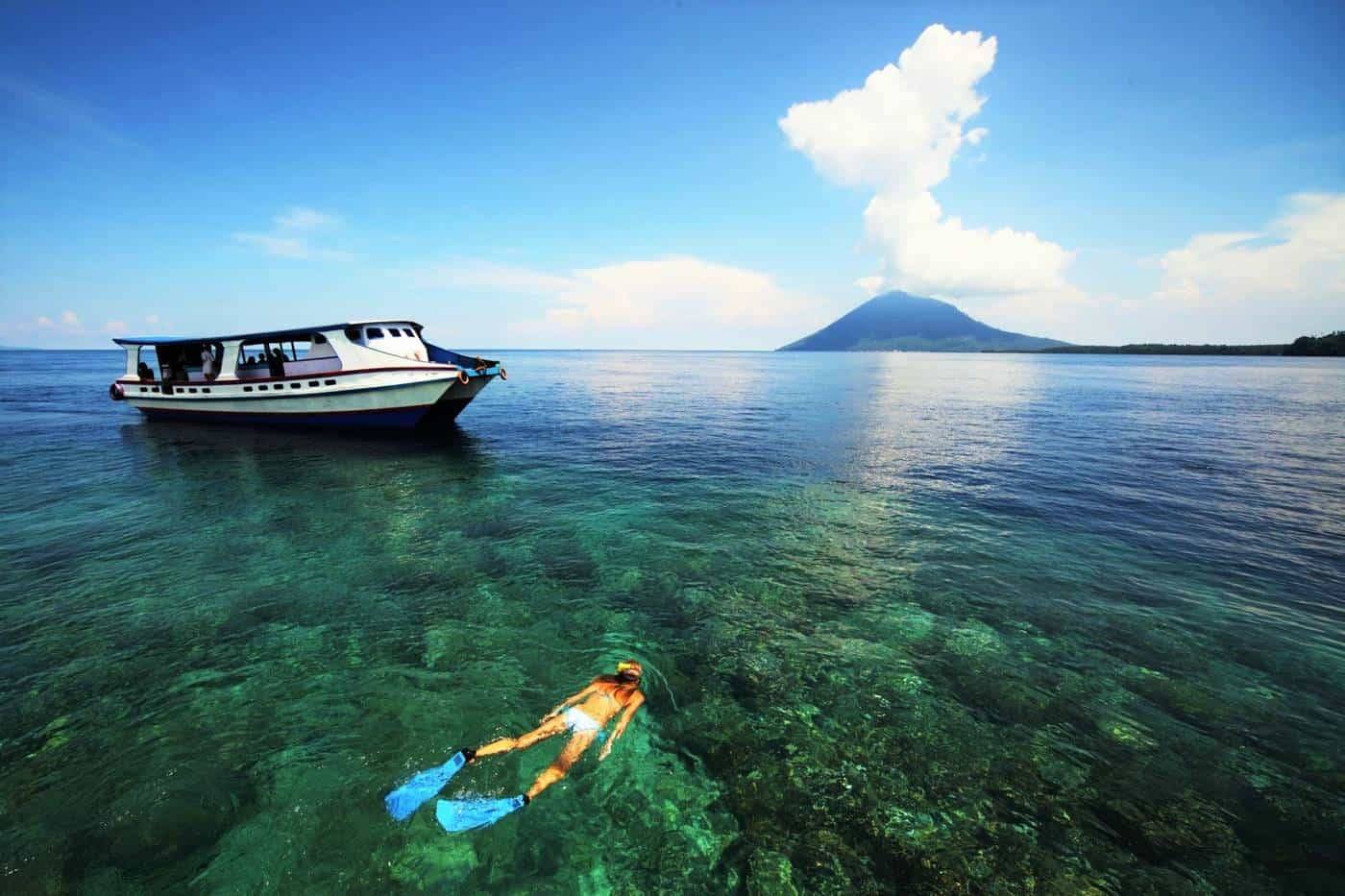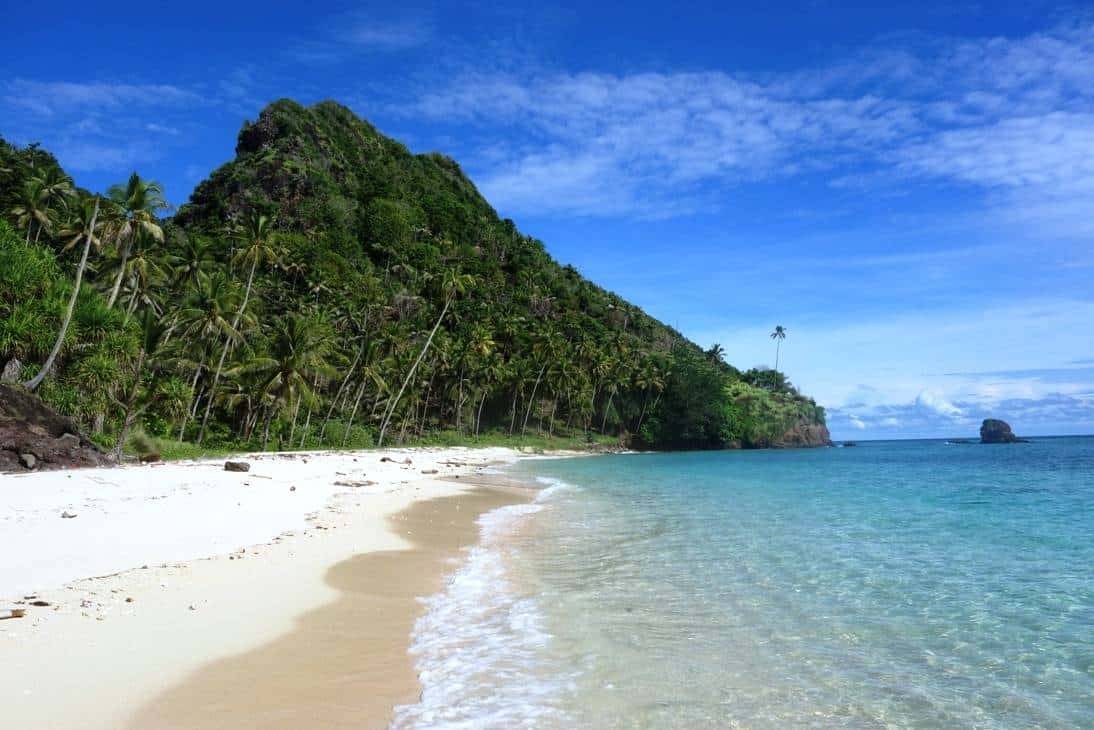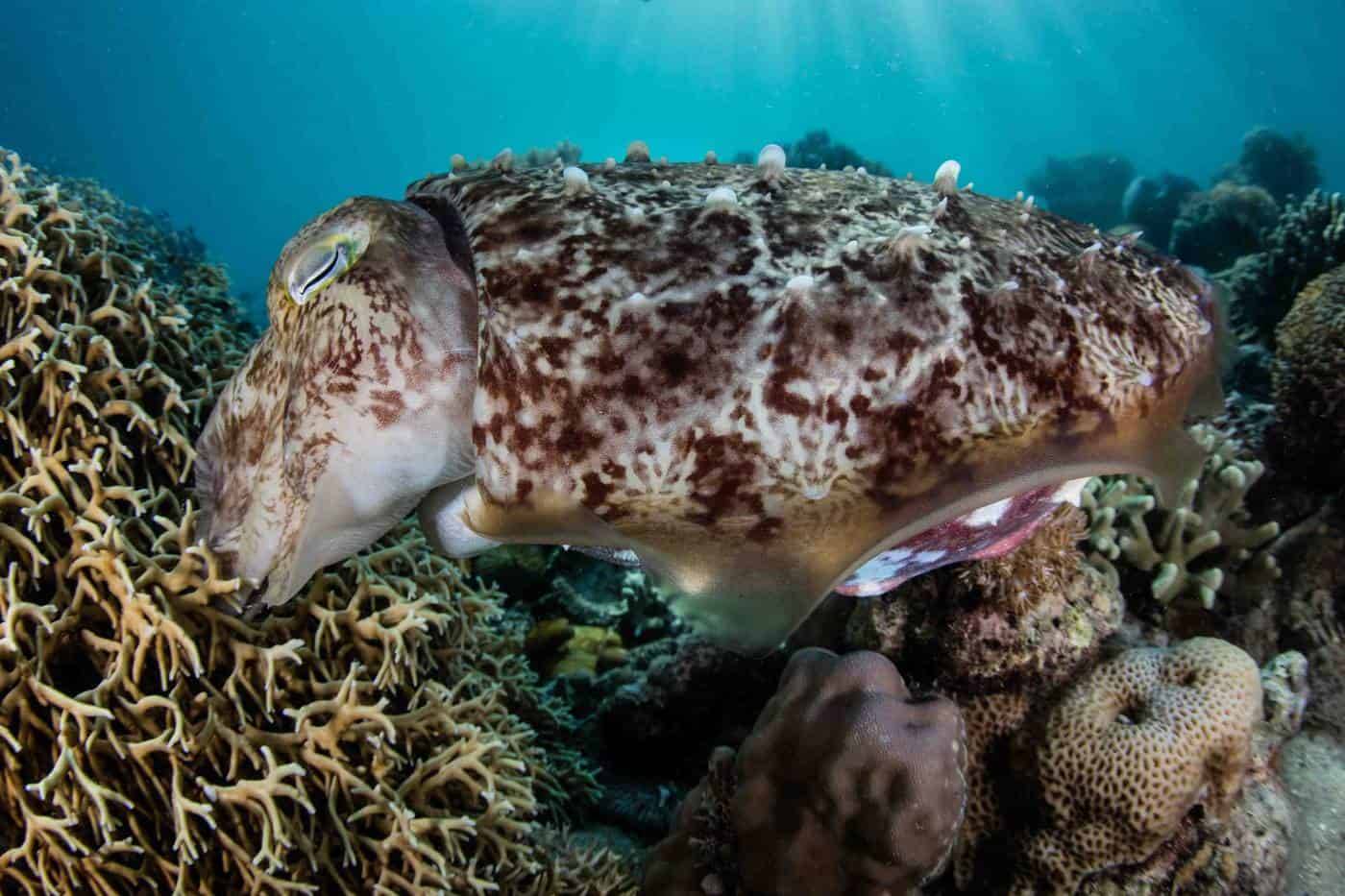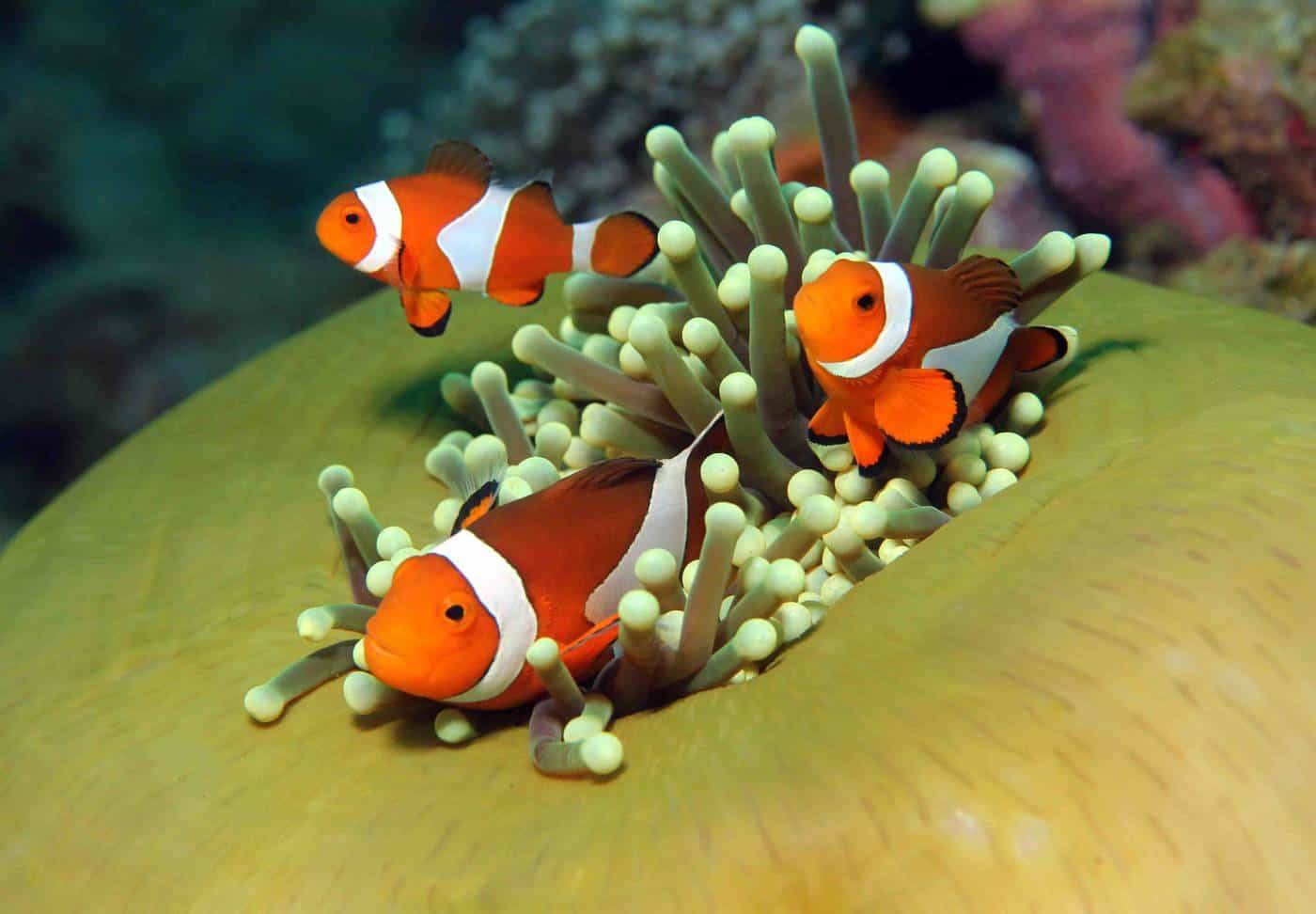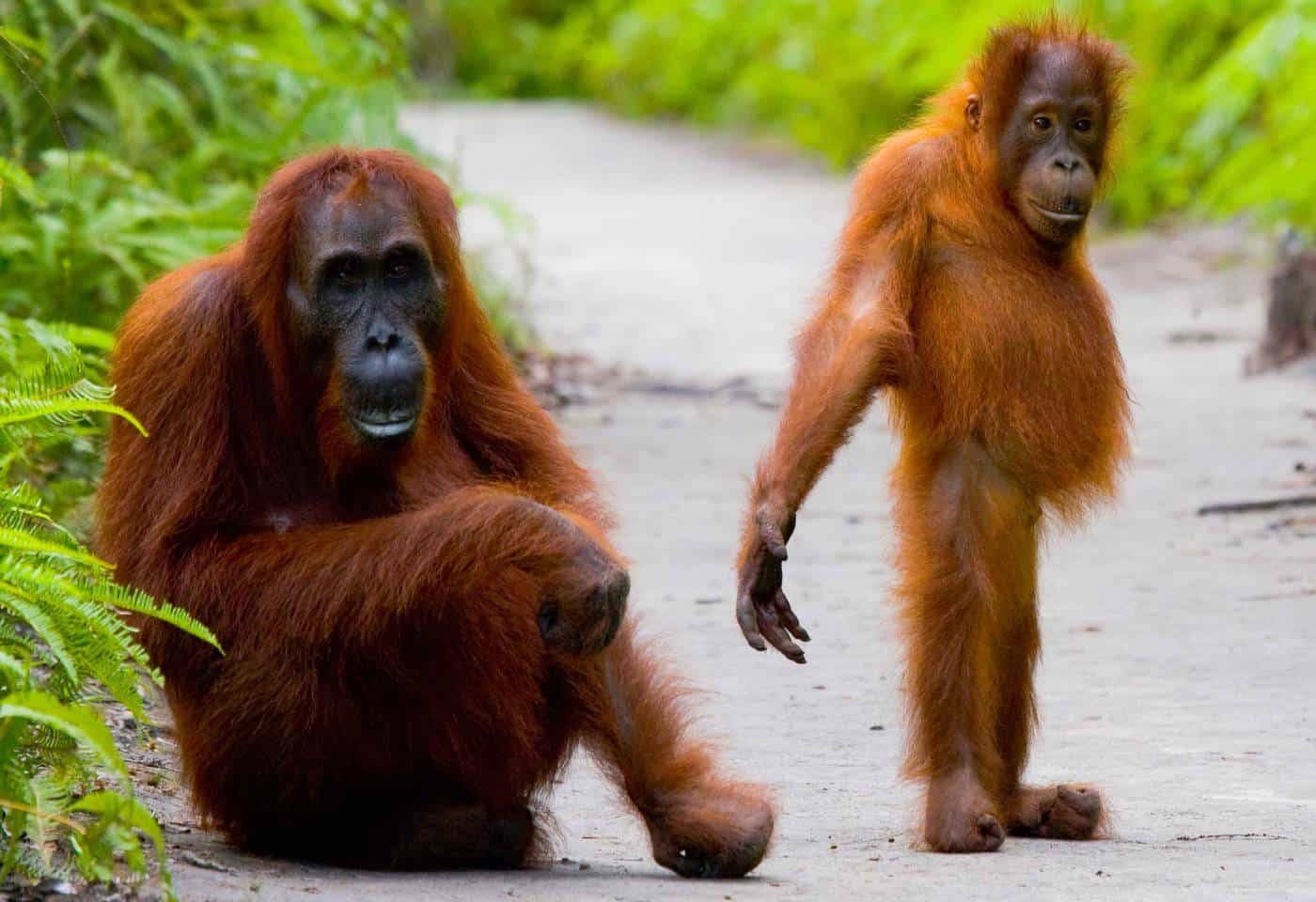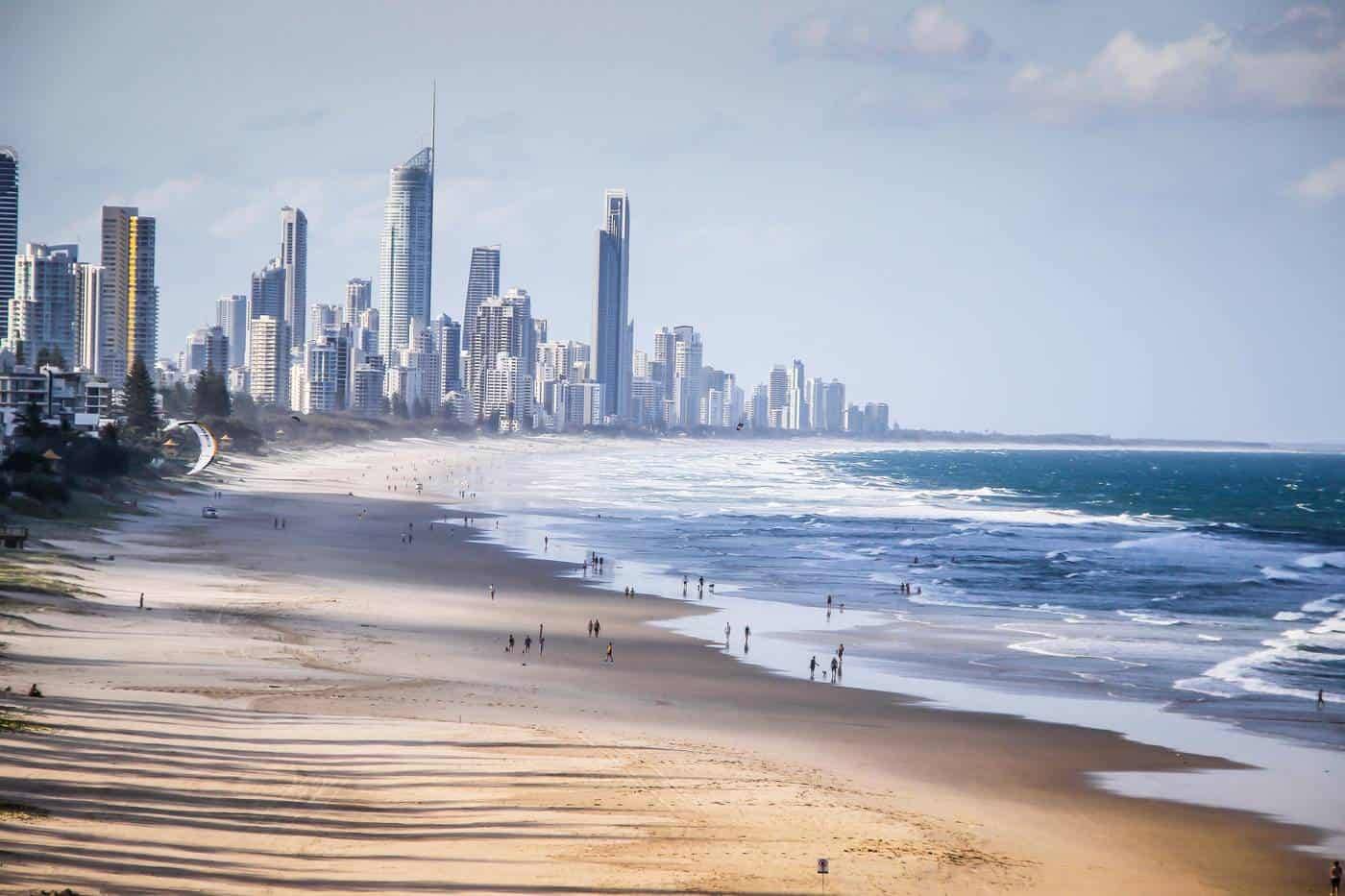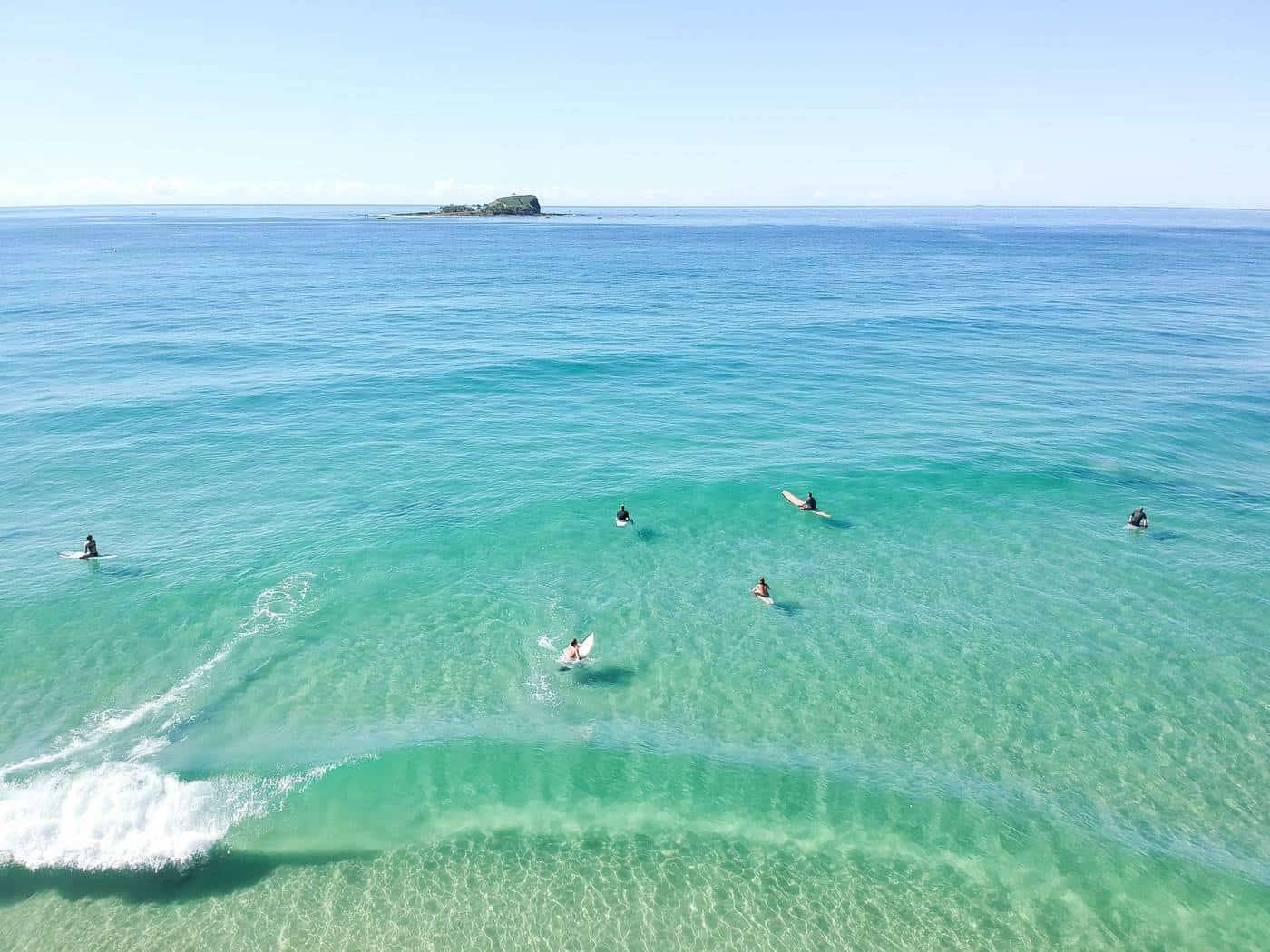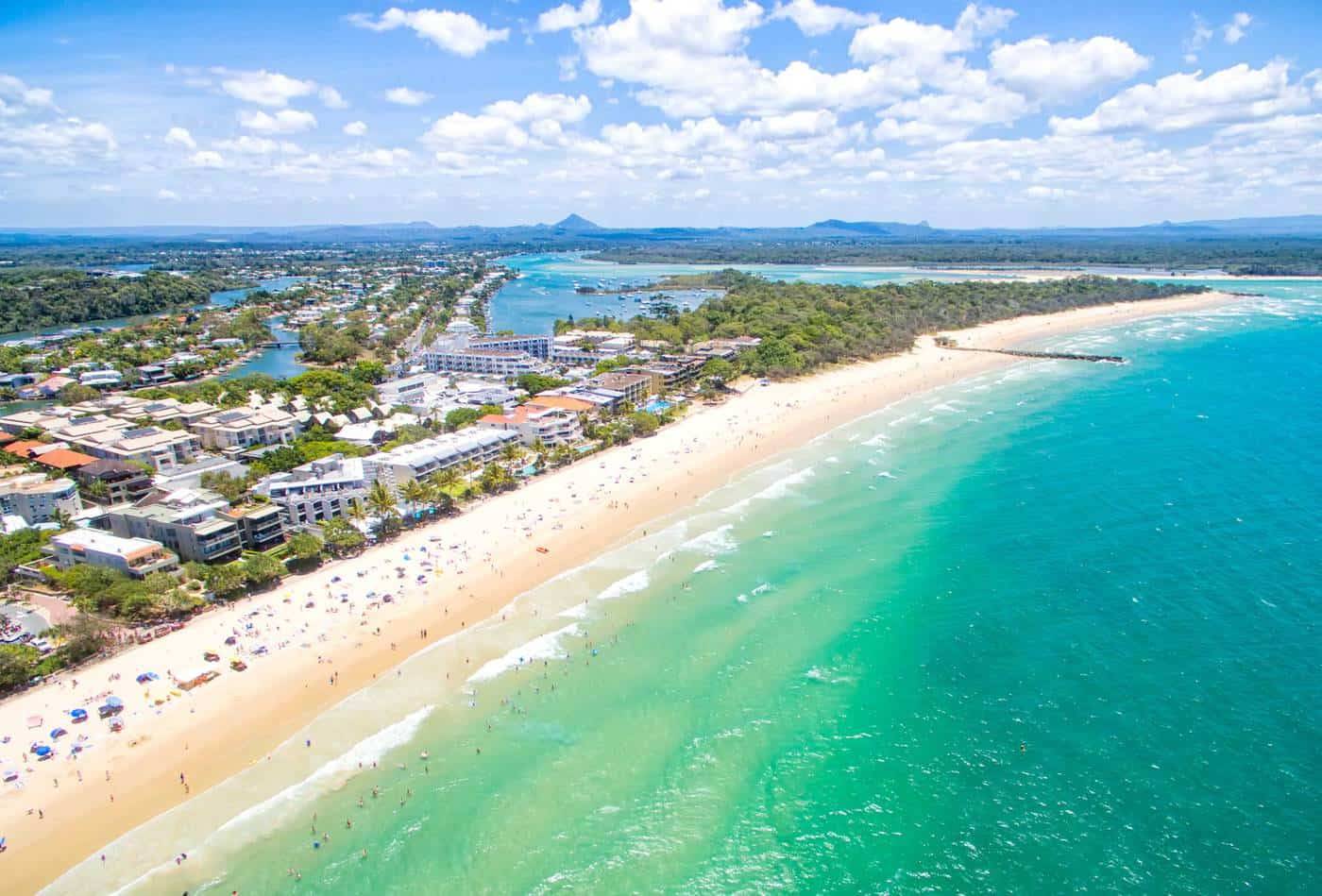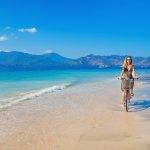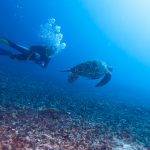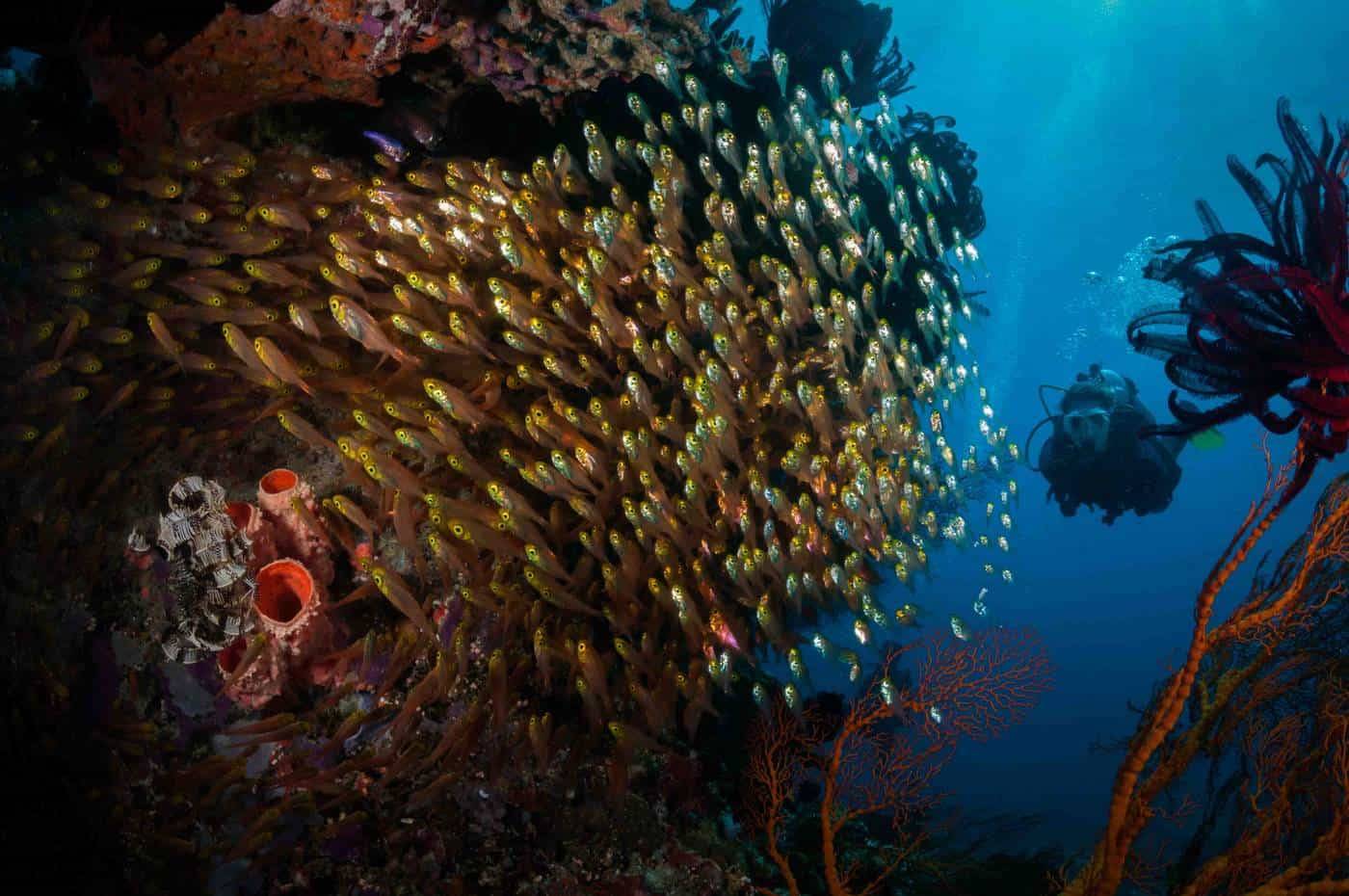
BUNAKEN MARINE PARK (AT THE HEART OF THE CORAL TRIANGLE)
Bunaken Marine Park, however, is not the only coral paradise in North Sulawesi. Its off-shore islands reach up to the Philippines, and their remoteness indicates that there will be something special to discover; and indeed, absolute virginity offers itself to any visitor. Sitting right on the equator, this is a tropical destination ruled by the monsoon. Hence a trip to the Bunaken Marine Reserve needs proper planning.
MANADO BAY
Surrounded by lush tropical peaks, Manado Bay serves as the gateway to North Sulawesi, particularly for those diving at the volcanic islands of Bunaken, Lembeh and Bangka, but also the outlying Sangihe Archipelago.
The Bunaken Islands offer the most attractive diving locations, including the islands of Bunaken, Manado Tua, Mantehage, Nain and Siladen.
Further north, Bangka Island attracts with surreal beaches, pristine nature and world-class diving sites. Lembeh Island is renowned for muck diving and underwater macro photography.
All of these three destinations will not be cheap, that is for sure, but there is a wonderful alternative for the budget travellers and adventurers who don`t mind getting out of their comfort zone, the isolated Sangihe–Talaud Archipelago.
WHY IS BUNAKEN MARINE NATIONAL PARK SO EXCEPTIONAL
Bunaken Island National Marine Park exhibits the highest level of biodiversity in the world, with outstanding fish variety and world-class wall diving.
The crystal-clear warm sea contains an astonishingly high number of different species, whether corals, sponges or fish. When scuba diving in Bunaken you can see seven times more genera of coral than in Hawaii, 33 species of butterfly fish and more than 70 per cent of all fish species known to live in Indonesian waters.
Ocean currents sweeping into Bunaken bring a steady stream of nutrients, providing sustenance for the area`s abundant marine life, including huge schools of black triggerfish, barracuda, moray eels and sea snakes. Napoleon wrasse, angelfish, sea turtles, blue ribbon eels, stingrays, eagle rays, snappers, groupers and sharks can also be seen.
BUNAKEN ISLAND
Tourism is well-developed on the Bunaken Islands, with accommodation ranging from backpacker cottages to 5-star resorts, plenty of restaurants, massage & spa options, tour operators and open water dive courses.
Generally, Bunaken is considered as a fairly expensive travel destination defined by private dive and holiday resorts, and even the simplest accommodation is quite costly.
TO GET THERE: take a public ferry to Bunaken village from the river behind the warungs at Pasar Bersehati in Manado, or a private boat from behind the Celebes Hotel in Manado. NOTE transport from Manado is usually arranged by your resort in advance.
BANGKA ISLAND
No roads, no stress and no worries; perhaps these are the reasons why the Bangka Island gained such popularity. There are excellent snorkelling and scuba diving sites suitable for both beginners and experienced divers. Reef inhabitants include white and black tip reef sharks, giant sea turtles, Napoleon fish, pygmy seahorses, dugongs, dolphins, and even occasional whales.
On land instead, Bangka’s fauna includes wild Timor deer, Tarsius and Maleo and there are several lovely jungle trails. Besides, the Bangka Island is renowned for its divine beaches and secluded bays and a perfect place to unwind.
TO GET THERE: Bangka is about 90 minutes Manado, using a combination of car and boat. It is not easy to get there independently, but it is not impossible. A public orange boat leaves daily from Likupang Beach (mainland) to Lihunu (Bangka) where you have to hire a small canoe to take you to your hotel. NOTE most resorts will arrange transfers from the airport for their guests.
LEMBEH ISLAND
Lembeh Island stretches along the other coast of the northern tip of Sulawesi, facing the Maluku Islands. The island is separated from Sulawesi by the Lembeh Strait known for its colourful marine life, especially sea slugs.
Muck diving is a very particular type of diving – if you are a fan of the tiny sea creatures and have a sense of detail, this is a spot for you. Underwater macro photography here is at its best; the Lion Fish, Giant Frog Fish, Hairy Frog Fish, Mimic Octopus, Blue Ringed Octopus, Banded Sea Snake, Banded Eel, Mandarin Fish, Orangutan Crabs, Manta Shrimps and others.
Lembeh is easily accessible from Bitung, and there is a good tourist infrastructure with lots of dive resorts and diving expedition operators.
TO GET THERE: any diving resort will normally arrange your transfer to Lembeh. However, you can travel independently from Manado to Bitung Port (2 hours) and then 10 minutes via a boat until you reach Lembeh.
WHEN TO TRAVEL
The dry season runs from May to October, when the visibility is the best.
HOW TO GET THERE
Fly to Manado.
For all international flights visit www.momondo.com or www.skyscanner.com
For all domestic flights check out Lion Air, Garuda Indonesia or Sriwijaya Air
